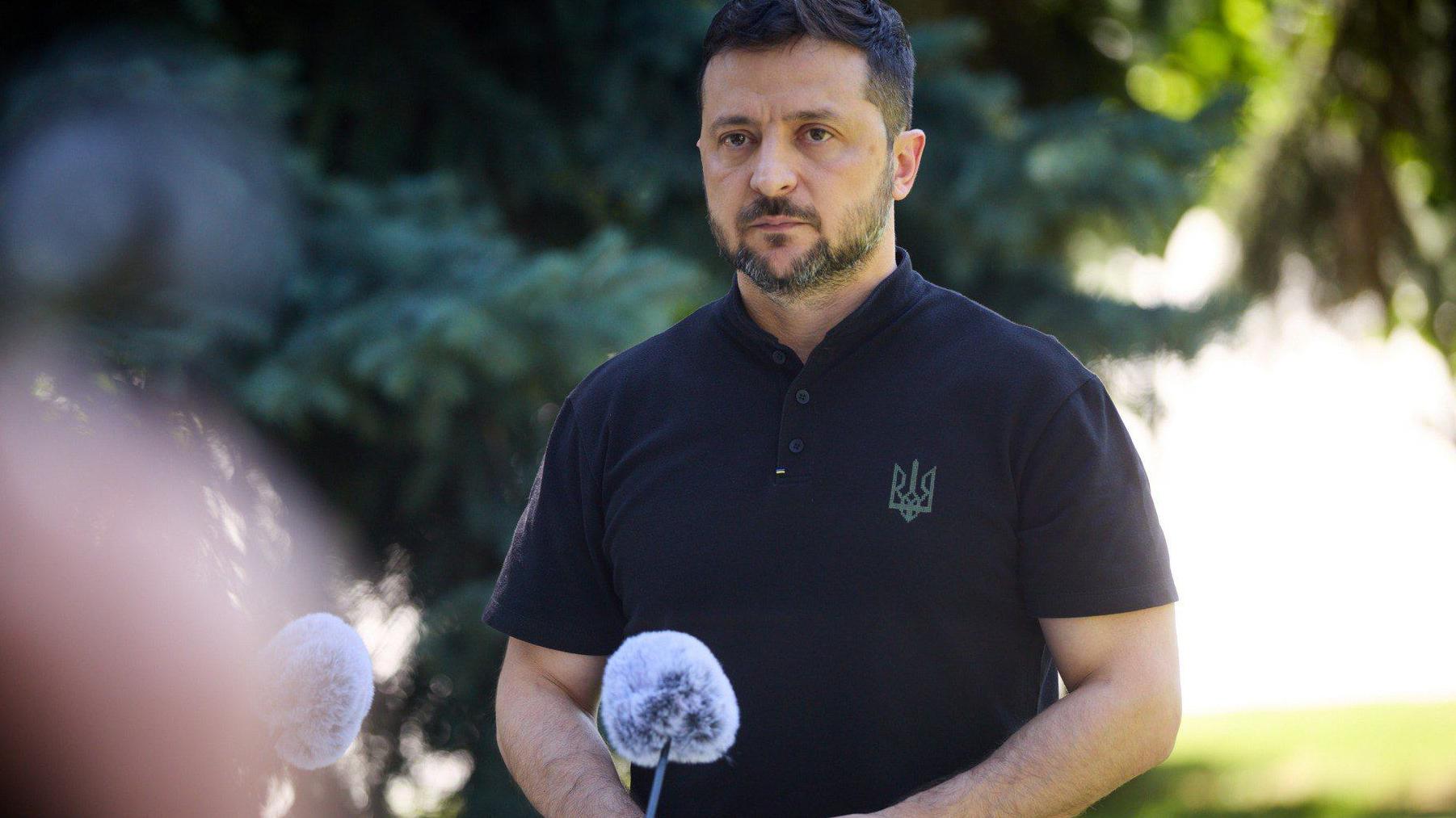Ukrainian President Volodymyr Zelensky has strongly rejected proposals for creating a buffer zone between Ukraine and Russia as part of ongoing peace discussions, stressing that such ideas fail to address the realities of modern warfare. The proposal, circulating among European policymakers, suggested a 25-mile demilitarized zone, but Zelensky argued that battlefield dynamics shaped by drones already create a “dead zone” where heavy weapons cannot operate effectively. His refusal underscores Ukraine’s stance that any agreement requiring territorial concessions is unacceptable.
Zelensky Emphasizes Drone Warfare as the Decisive Factor
Zelensky explained that drone warfare has transformed the battlefield, making traditional concepts of buffer zones outdated. He noted that Ukrainian and Russian heavy artillery already remain positioned over 10 miles apart due to the constant threat of drone strikes. According to him, this de facto “grey zone” already exists, rendering proposed agreements impractical. Ukraine’s position remains that Russia, not Ukraine, should retreat further into occupied territory if Moscow seeks distance. Recent escalations, including Russia’s launch of over 600 drones and missiles on Kyiv in a single night that killed more than 20 civilians, demonstrate the devastating impact of advanced drone warfare and highlight the risks of postponing effective peace negotiations.
Western Allies Press for Security Guarantees
While rejecting a buffer zone, Zelensky has continued to push for stronger Western security guarantees. Discussions with European leaders and U.S. officials have focused on NATO-like commitments that would give Ukraine protection against further Russian aggression. Leaders from France and Germany confirmed they are intensifying pressure on Russia, while EU defense ministers acknowledged that guarantees for Ukraine must be “robust and credible.” This comes amid a wider debate about how to secure long-term peace while maintaining Ukraine’s sovereignty. International observers highlight that the outcome of these talks could reshape Europe’s security architecture for decades. For readers seeking updates on NATO’s evolving commitments, the official NATO website provides ongoing coverage of security initiatives.
Russia Accused of Delaying Peace While Escalating Attacks
Despite multiple peace initiatives led by the United States and European Union, Russia shows little willingness to engage in genuine negotiations. Western diplomats say Moscow’s demands continue to focus on recognition of territorial gains, an idea firmly rejected by Kyiv. Russia’s foreign ministry claims that Western proposals are “one-sided,” while Ukraine insists that Moscow is deliberately stalling to extend the war. The conflict, now lasting more than 40 months, has severely strained Ukraine’s economy and destroyed critical infrastructure. Analysts at Council on Foreign Relations warn that prolonging the conflict without binding agreements could destabilize not only Ukraine but the broader European region. Humanitarian organizations such as the International Committee of the Red Cross continue to report widespread civilian suffering due to Russia’s attacks on energy grids and residential areas.
The geopolitical implications remain immense. Washington and Brussels are now weighing additional sanctions against Moscow while also debating long-term funding for Ukraine’s defense. Readers can follow updated economic impacts through the World Bank, which monitors reconstruction costs that are expected to exceed hundreds of billions of dollars. With both sides entrenched, the prospect of immediate peace looks increasingly remote, and Zelensky’s rejection of the buffer zone proposal signals that Ukraine will not accept agreements that undermine sovereignty or security.



